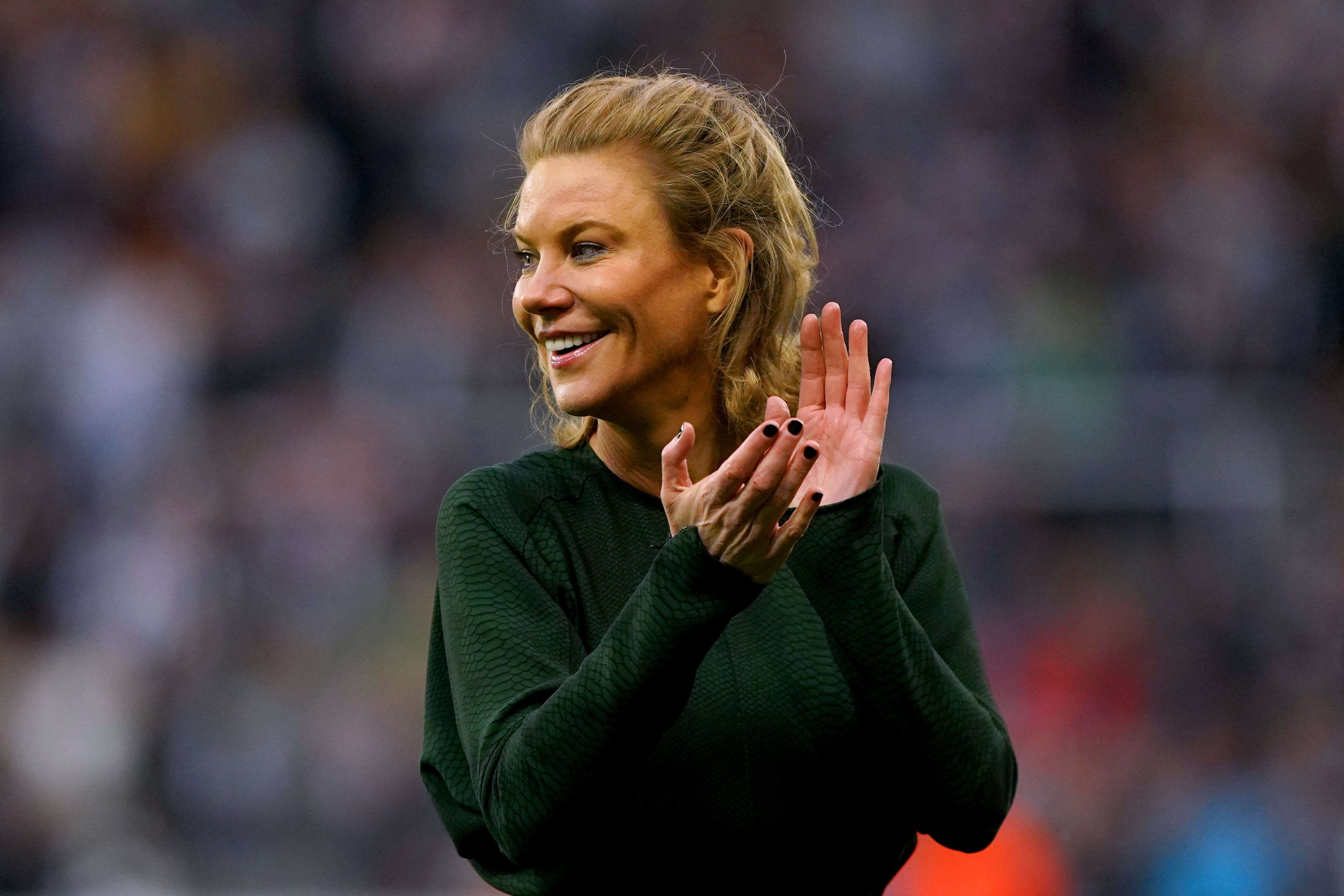Newcastle United co-owner challenges £36m bankruptcy petition in court
Amanda Staveley asked the Insolvency and Companies Court to set aside a demand served by Victor Restis in May last year.

Newcastle United co-owner Amanda Staveley has made a bid to throw out a bankruptcy petition against her alleging she owes a shipping tycoon more than £36 million, the High Court heard.
Ms Staveley, who headed the Saudi-backed consortium that took over the football club in 2021, asked the Insolvency and Companies Court to set aside a demand served by Greek businessman Victor Restis in May last year.
The claimed figure comprises £3.4 million in principal, £2.1 million in “legal costs and expenses” and £31.3 million in interest, totalling £36.8 million, according to Ms Staveley’s lawyers.
The specialist court heard it is “common ground” that Mr Restis agreed in 2008 to arrange a £10 million investment in Ms Staveley’s business ventures, but that there was “some ambiguity” about whether this was a loan or some other form of investment.
In May 2016, the parties entered an agreement.
According to written submissions by Ms Staveley’s lawyer, Ted Loveday, his client was told to sign various other documents and instruments between 2017 and 2021, which ultimately said she was personally liable and which incrementally topped up that liability.
“The various post-2016 instruments… were procured by duress, undue influence and/or misrepresentation,” Mr Loveday said.
“The debt of £3.4 million had morphed into a debt in excess of £10 million, and which was said to exceed £36 million by May 2023,” he added.
Ms Staveley claimed she felt intimidated into signing the post-2016 documents, the court heard.
A specialist judge was told that Mr Restis’ lawyer, John Neocleous, allegedly told Ms Staveley that the shipping magnate “was not a man to be messed with, that he was dangerous and that (she) should not cross him”.
There is a real lack of reality in relation to an assertion of duress as to the agreements
Mr Loveday said in written submissions that she “worried for the safety of herself and her family”.
“Ms Staveley felt understandably intimidated and felt she had no option but to sign,” he added.
Mr Loveday also said that Ms Staveley claimed her Huntington’s disease, which she allegedly made no secret of from Mr Restis or Mr Neocleous, affected her thinking and judgment.
But lawyers for Mr Restis said there is “no evidence” of “undue influence or duress”.
Raquel Agnello KC told the court that Ms Staveley was sent documents, given time to look over them and given opportunities to make revisions before she signed them.
In written submissions, Ms Agnello said: “There is a real lack of reality in relation to an assertion of duress as to the agreements.
“There is no evidence of any unlawful conduct by either Mr Restis or Mr Neocleous.”
She told the court there is no evidence “beyond (Ms Staveley’s) bare assertion” that Mr Restis is a dangerous man.
Referring to Ms Staveley’s medical condition in written arguments, Ms Agnello said: “There is no evidence that the debtor actually informed either Mr Restis or Mr Neocleous that she had Huntington’s.
“Importantly, the debtor does not assert that she informed either of them as to how that affected her in negotiations for the repayment of an outstanding loan.”
Ms Agnello also said an agreement signed on January 7 2021 “supersedes all previous agreements” and that under it, Ms Staveley is liable.
Mr Loveday asked the court to set aside the demand for over £36 million because it “raises a claim which ought to be determined by arbitration” and because Ms Staveley has “substantial ground for denying liability”.
He claimed that the 2016 agreement decided parties would submit their disputes to arbitration and that the same agreement said Ms Staveley is not personally liable and provided for her company PCP Capital Partners to pay.
Mr Loveday called the interest claims and claimed legal costs levelled against Ms Staveley “stratospheric”, and the imposition of personal liability as having come “out of the blue” in 2019.
The hearing before Judge Daniel Schaffer is due to continue on March 19, where Ms Agnello will continue her submissions and invite the court to dismiss Ms Staveley’s application to set aside the statutory demand.
